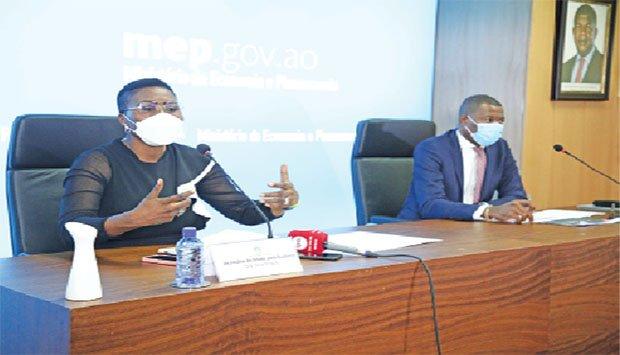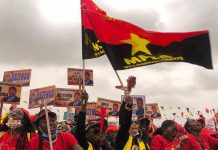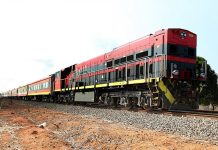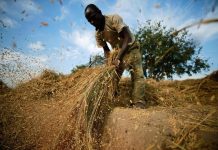Africa-Press – Angola. The Credit Guarantee Fund (FGC) has promoted, in the last 10 years, the financing of projects with a global value of 231 billion kwanzas (440.7 million dollars), whose guarantees issued stood at 132 billion ( USD 251 million), equivalent to an average coverage of 75 percent of the capital disbursed by financial institutions.
At the twice-weekly press conference of the Ministry of Economy and Planning, the chairman of the Board of Directors, Manuel Passos, presented the balance of the activities of the Credit Guarantee Fund over the last 10 years.
The manager announced that the aforementioned funding was directed to the productive sector, in favor of projects in Agriculture, Agro-industry, Industry and Fisheries.
In 2021, for example, the Credit Guarantee Fund paid around 40 guarantees to commercial banks, still to be executed, up from the seven (7) issued in 2020.
In the clarifications, Manuel Passos recalled that in relation to financing, the FGC supports the Executive’s initiatives in the market, such as the PRODESI support lines, such as the Credit Support Program (PAC), Notice 10/2020 of the BNA, the Commercial Agriculture Support Program, funded by the World Bank and partner development agencies, providing an average coverage of 65 percent of capital.
To ensure robustness, in 2020, the Credit Guarantee Fund was reinforced with a capital of 40 billion kwanzas, which allowed it to continue issuing guarantees to cover PAC operations and those of the BNA Notice.
As detailed, in the specific case of Notice 10/20 of the BNA, the fund issued 155 guarantees, in an amount financed in more than 200 billion kwanzas and another five (5) in the PAC, in the amount equivalent to seven billion kwanzas.
“Guarantees are strategic, as they undertake to pay the bank customer’s debt, in case it defaults, with an annual cost of two percent during the term of the financing”, he highlighted, exemplifying that, in a financing of 20 million euros, kwanzas, the FGC covers 15 million, corresponding to 75 percent of the capital, which will be paid to the bank in the event of default by the promoter .
The Credit Guarantee Fund intends, over the next five years, to contribute to the consolidation of the national system of guarantees, a method that promotes the greatest possible number of financing.
According to Manuel Passos, the objective is to transform the Credit Guarantee Fund into a Credit Guarantee Society, improve the guarantee management cycle, strengthen offers and products, among other necessary elements, to ensure a good business environment between banks and national entrepreneurs.
“We intend to implement closer support to the business class, taking into account the difficulties we have encountered throughout the process since 2012, the date of existence of the fund”, he stressed. Another five thousand agents will be formalized
The Informal Economy Reconversion Program (PREI) was launched yesterday in the province of Malanje, in the Chawande market, in a process that foresees the formalization of more than 5,000 traders.
As far as it was possible to ascertain, the opening of the process is still reserved for tomorrow in the province of Cuanza-Norte, in the markets of Catome de Cima, in the municipality of Cazengo, city of N’dalatando, with a goal also of formalizing another five thousand entrepreneurs.
The PREI will allow informal operators to have access to the portfolios of bench and street vendors. Also obtain a taxpayer number, Social Security registration, commercial certificate, access to micro-credit for business investments, among others.
Regarding the ongoing process, the Secretary of State for the Economy, Dalva Ringote, highlighted that, so far, in terms of informal markets, a total of 61,912 economic agents have been formalized. They operated in the markets of Km 30, Luanda-Sul, Viana Sanzala, Kikolo and Asa Branca, in Luanda, and in the markets of Quissala, in Huambo, and Chissindo, in Bié.
Just this week, the team traveled to the provinces of Huíla and Cunene to start the program.
For More News And Analysis About Angola Follow Africa-Press






